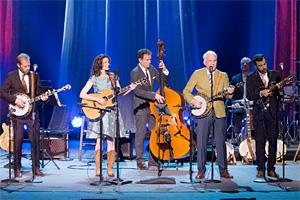PBS Pledge Drives Worse Than a Bad Habit
As a former smoker, I can tell you that what once was acceptable, then shown to be a tar-and-nicotine-paved path to no good, is a tough and awful habit to break.
The people who run PBS are similarly addicted to an awful habit. Trouble is, no one to date has convinced them they should stop. That addiction is to the once-acceptable, now detestably unhealthy way the network's stations raise money several times a year. We're in what they call a "pledge period" now, as any usually devoted PBS fan can tell you, and it smells worse than an overflowing ashtray.

One doesn't expect to see this kind of programming on a network otherwise known for high quality. Most of those who love regular PBS programming are appalled by these programs and their deviation from the norm. As a result, loyal fans are lost, at least temporarily. And the people who are attracted to these misfits may cough up some money, but they may not be pleased when the drive is over and Suze heads south for another couple of months to be replaced by science shows, Brit dramas and how-to shows -- all of which inhabit a plateau totally dissimilar to shows that have the words "wheat belly" in the title.

These and other tasteless tactics of PBS pledge drives are as out-of-place and gauchely mistaken as a platter of White Castles on a Downton Abbey banquet table. That these judgment errors continue unchanged and unchallenged isn't easily forgiven. Public radio stations with which I'm familiar don't rely on stunts and bad manners to receive support. So why is the larger sibling so clueless?
Going back to the top of this rant, there once was a time when smokers were welcomed almost everywhere and no one thought of challenging such negative behavior. Today the smokers who persist not only are not welcomed, they are treated as the worst and most undesirable of creatures by many.
Please, PBS, clean up your act, break the habit and treat your fans with the respect they deserve. Because right now you stink.